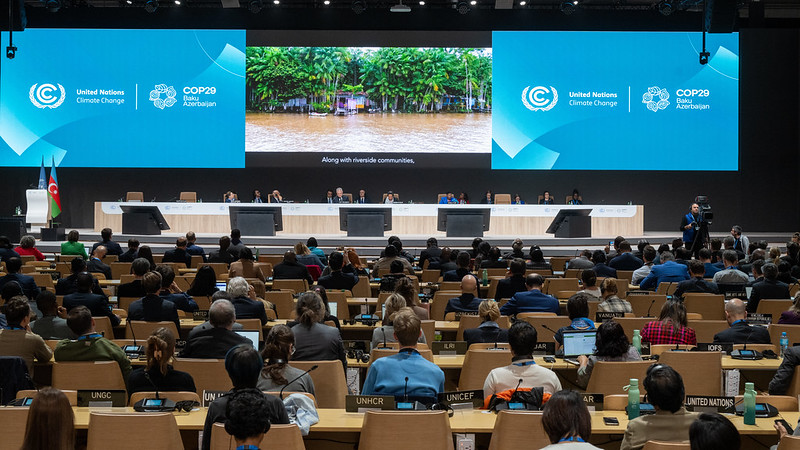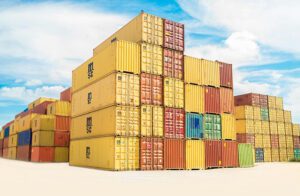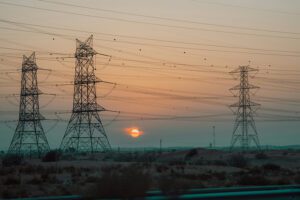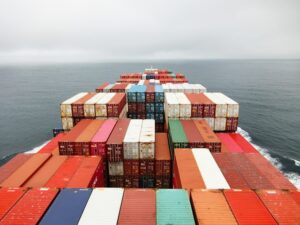The UN climate summit in Baku, Azerbaijan, concluded Nov. 22 with a significant yet contentious agreement on climate finance, criticized by many developing countries who expressed disappointment over its limited scope.
“I had hoped for a more ambitious outcome—on both finance and mitigation—to meet the great challenge we face,” UN Secretary-General António Guterres said after the final deal was announced.
The urgency of the situation had already been outlined in the World Meteorological Organization’s State of the Climate Update for COP29. The report found 2024 is tracking to be the hottest year on record, temporarily breaching the crucial 1.5°C threshold, while greenhouse gas levels have reached unprecedented heights.
The finance deal
The summit’s centerpiece achievement—a new climate finance framework—commits developed nations to channel “at least” $300 billion annually to developing countries by 2035.
The agreement, known as the New Collective Quantified Goal (NCQG), sets an overall climate financing target of $1.3 trillion by 2035, drawing from various sources including private investment. This figure fell significantly short of the demands of developing nations, who had sought dedicated public funding exceeding $1 trillion.
The contentious nature of the negotiations became apparent when several nations, including India and Nigeria, accused the COP29 presidency of forcing through the agreement without proper consensus.
“Commitments must quickly become cash,” Guterres emphasized. “All countries must come together to ensure the top-end of this new goal is met.”
Nations Step Up Climate Commitments
The second week saw several countries announcing enhanced climate targets. In a significant move, Indonesia declared plans to phase out coal-fired power generation by 2040.
“We will retire all fossil fuel plants and add more than 75 gigawatts of renewable energy capacity,” President Prabowo Subianto announced during the G20 Summit in Brazil.
A coalition of nations representing 30% of global GDP and 15% of greenhouse gas emissions, including the UK, Brazil, and the UAE, said they would strengthen their commitments to align with the 1.5°C pathway. This group includes the GZERO countries— Bhutan, Madagascar, Panama, and Suriname—which have already achieved net-zero emissions.
Looking Ahead to COP30
While negotiators successfully finalized the remaining sections of Article 6 on carbon markets—completing all elements of the Paris Agreement nearly a decade after its signing—they failed to reach consensus on implementing last year’s “global stocktake” outcomes, including the crucial pledge to transition away from fossil fuels. This decision has been deferred to COP30 in Brazil.
The end of the fossil fuel age is an economic inevitability, said Guterres, emphasizing that while COP29s finance agreement provides a foundation, “new national plans must accelerate the shift and help to ensure it comes with justice.”
Meanwhile, the recent election of Donald Trump as U.S. President cast a shadow over future progress, given his previous withdrawal of the United States from the Paris Agreement and promises to roll back climate action. While COP29 U.S. climate negotiator John Podesta acknowledged the likelihood of Trump reversing progress, he stressed that “the fight is bigger than one election, one political cycle in one country.”














